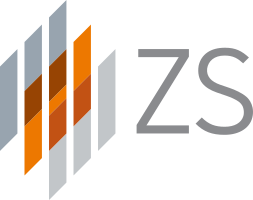
Lead AI Engineer
- Buenos Aires
- Permanente
- Tiempo completo
- Architect and implement LLM-powered intelligent agents that support dynamic decision-making and multi-step task execution across the Trials.ai platform
- Build integrations between our agents and:
- Trials.ai’s Clinical Studies Ontology (RDF/OWL)
- Our Dynamic Data Graph and structured metadata layer
- Our NLP document ingestion pipeline (Banzai)
- Develop agent workflows that include retrieval-augmented generation (RAG), scenario modeling, and user-preference learning
- Engineer traceable, interpretable outputs with rationale surfacing for study recommendations and downstream document generation
- Contribute to overall architecture decisions, best practices, and ML/agent lifecycle management
- Partner with clinical SMEs, ontology leads, product managers, and full-stack engineers to ensure alignment of intelligence with end-user needs
- Drive continuous improvement in relevance, explainability, and system performance
- 7+ years of experience building AI/ML systems, with 2+ years in agentic AI, LLM orchestration, or multi-agent frameworks
- Strong software engineering background (Python is a must; FastAPI, LangChain, LangGraph, or TypeScript a plus)
- Hands-on experience with:
- Core NLP techniques: named entity recognition (NER), text classification, keyword extraction, relation extraction
- LLM ecosystems: OpenAI, Anthropic, HuggingFace
- Retrieval & search: semantic search, embedding-based retrieval, retrieval-augmented generation (RAG)
- Vector databases: Pinecone, Qdrant, FAISS
- AI systems design: agent planning, context handling, memory chaining, observability
- Experience in building production-ready AI/NLP solutions in a regulated, B2B, or healthcare context
- Excellent problem-solving, code quality, and collaboration skills
- Familiarity with clinical trial workflows, CDISC standards, or protocol design schemas
- Experience with agent orchestration libraries (CrewAI, AutoGen, ReAct, LangGraph, etc.)
- Experience with Graph-based data models (RDF, OWL, Neo4j, or equivalent)
- Exposure to semantic web technologies (SPARQL, Protégé, BFO-based ontologies)
- Contributions to open-source AI or semantic projects